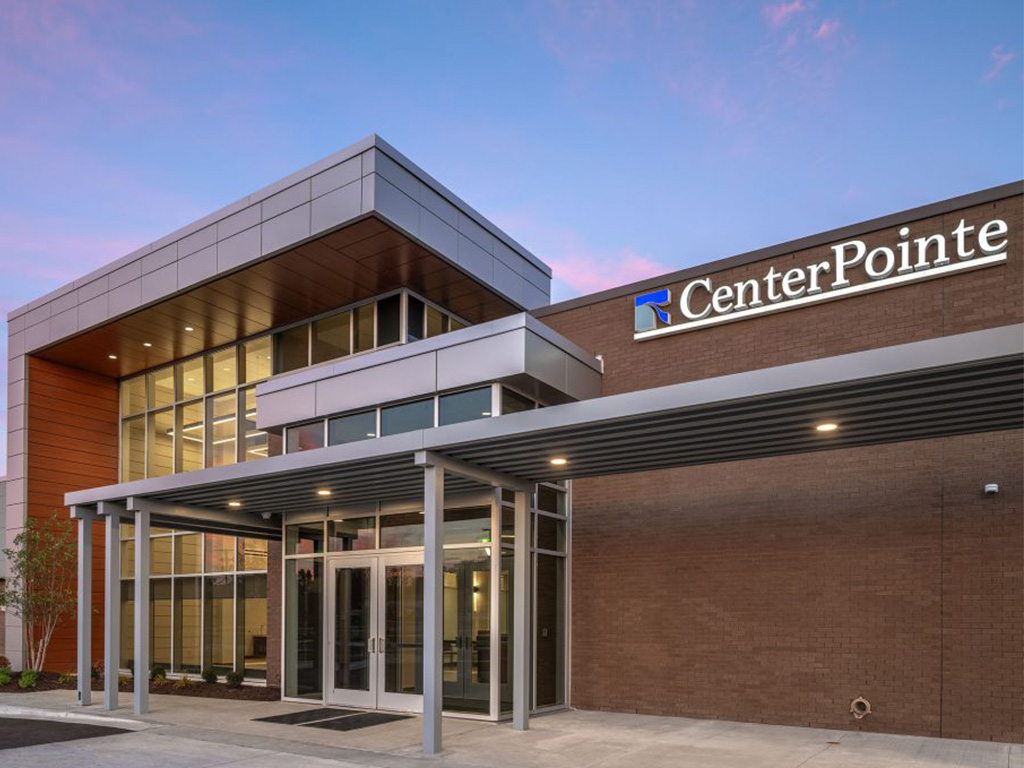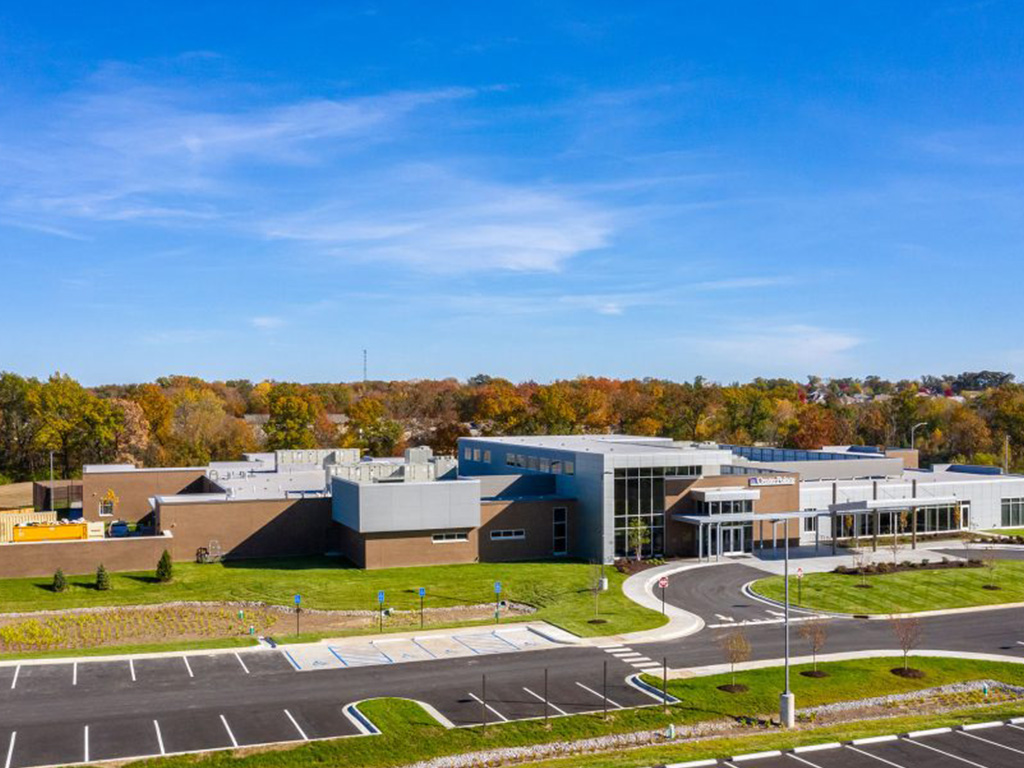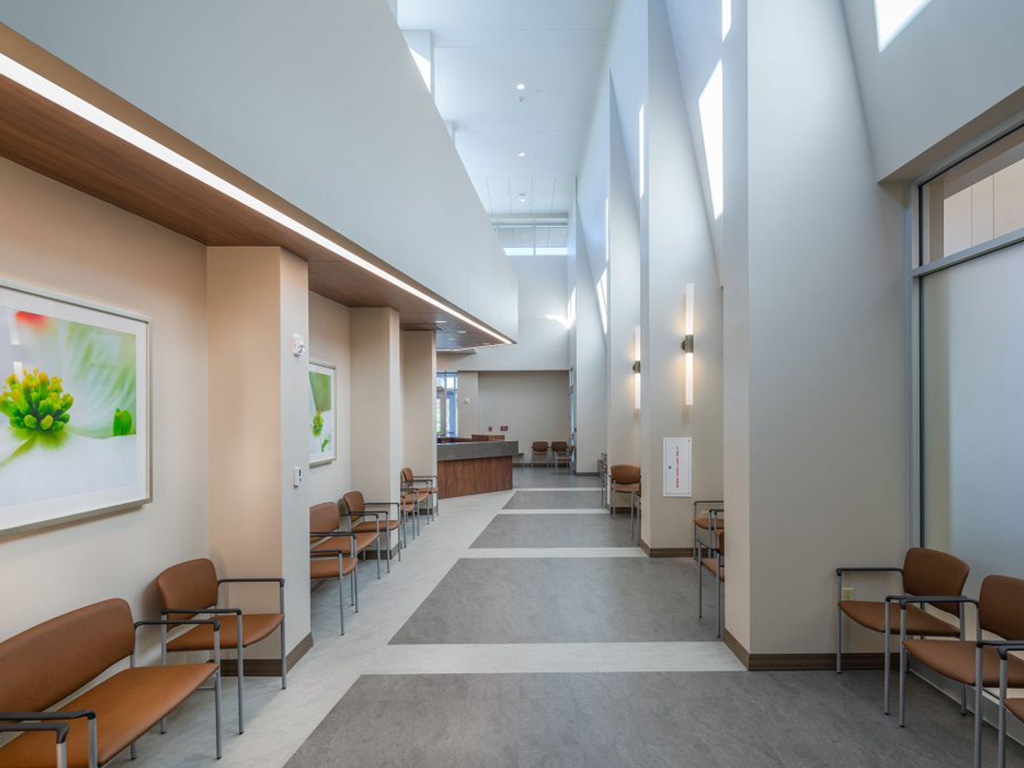Bipolar disorder is a complex mental illness that is associated with extreme fluctuations in mood, attitude, motivation, and energy levels.
The symptoms of bipolar disorder can be severe enough to cause significant distress and impaired functioning in one or more important areas of life. However, when a person receives appropriate treatment for bipolar disorder from a trusted provider, they can learn to manage their symptoms and achieve improved health.
CenterPointe Hospital of Columbia offers personalized bipolar disorder treatment for children, adolescents, adults, and senior adults.
Signs & Symptoms of Bipolar Disorder
People who develop bipolar disorder may have three types of episodes: manic, hypomanic, and major depressive.
- Manic episodes are characterized by elevated mood, little need for sleep, distractibility, racing thoughts, increased motivation, and inflated self-confidence. During a manic episode, a person may engage in activities that have a high risk for harmful outcomes. These activities can include risky business investments, spending sprees, reckless driving, substance abuse, and unsafe sex. To qualify as a manic episode, symptoms must be present most of the day, nearly every day, for at least one week.
- Hypomanic episodes include the same types of symptoms as manic episodes do. However, to meet the criteria for a hypomanic episode, these symptoms only need to be present for four consecutive days.
- Major depressive episodes involve feelings of sadness, emptiness, and hopelessness. During a major depressive episode, a person may struggle with disrupted sleep patterns, significant changes in appetite, and resultant weight gain or loss. Additional symptoms of major depressive episodes include an inability to feel pleasure, persistent fatigue, difficulty concentrating, indecisiveness, inappropriate guilt, and recurring thoughts of death. To meet the criteria for a major depressive episode, a person must have symptoms for a period of at least two weeks.
Bipolar disorder is a general term that can refer to several distinct conditions. The three most common forms of bipolar disorder are differentiated by the types of episodes or symptoms a person has:
- Bipolar I disorder: To be accurately diagnosed with bipolar I disorder, a person must have at least one manic episode. They may also have hypomanic and major depressive episodes, but the only diagnostic requirement for this disorder is one manic episode.
- Bipolar II disorder: People who have bipolar II disorder will have at least one hypomanic episode and at least one major depressive episode. They must never have had a manic episode, as that would qualify them for a diagnosis of bipolar I disorder.
- Cyclothymic disorder: The criteria for cyclothymic disorder include several periods of hypomanic symptoms that do not last long enough to qualify as a hypomanic episode, along with several periods of depressive symptoms that do not meet the minimum requirements for a major depressive episode. Adults must have these symptoms for at least two years. Children and adolescents may be diagnosed with cyclothymic disorder after having symptoms for one year.
Bipolar Disorder Statistics
The bipolar disorder statistics that are listed below were reported by the National Institute of Mental Health (NIMH):
- An estimated 4.4% of adults in the United States will develop bipolar disorder at some point in their lives.
- The past-year prevalence of bipolar disorder among adults age 18 and older is 2.8%.
- The past-year prevalence of bipolar disorder is almost identical among adult men (2.9%) and adult women (2.8%).
- When broken down by age groups, the past-year prevalence of bipolar disorder is highest among adults ages 18-29 (4.7%) and lowest among senior adults age 60 and older (0.7%).
- 82.9% of adults who have bipolar disorder experience serious impairment and 17.1% are moderately impaired, as rated on the Sheehan Disability Scale.
- About 2.9% of adolescents will develop bipolar disorder before their 18th birthday.
- The rate of bipolar disorder is higher among adolescent girls (3.3%) than among adolescent boys (2.6%).
Bipolar Disorder Causes & Risk Factors
As reported in the fifth edition of the Diagnostic and Statistical Manual of Mental Disorders (DSM-5), people who meet criteria such as the following may have an increased risk for developing bipolar disorder:
- Being separated, divorced, or widowed
- Living in a high-income nation
- Family history of bipolar disorder
- Genetic variations
Potential Effects of Untreated Bipolar Disorder
The longer a person continues to struggle with untreated bipolar disorder, the greater their risk may become for negative effects such as the following:
- Unacceptable performance at work or in school
- Academic failure
- Problems finding and keeping a job
- Conflicts with family, friends, peers, and colleagues
- Physical injuries due to reckless or impulsive behaviors
- Exposure to HIV/AIDS and other sexually transmitted infections
- Financial difficulties due to unemployment, spending sprees, or unwise business decisions
- Development or worsening of co-occurring mental health disorders
- Substance abuse and addiction
- Withdrawal and isolation
- Self-harm
- Suicidal thoughts and behaviors
It is difficult to overstate the devastating impact untreated bipolar disorder can have on a person’s life. For example, according to an August 2019 report in the journal Medicina, the suicide rate among people who have bipolar disorder is 10-30 times higher than among the general public. Research suggests that as many as 60% of people who have bipolar disorder may attempt suicide at least once, and 20% of those who have this disorder may die by suicide.
Levels of Care for Bipolar Disorder Treatment
Treatment for bipolar disorder can occur at several levels. When you understand the features and benefits of these different levels of care, you will be better prepared to make the best treatment-related decisions.
At CenterPointe Hospital of Columbia, people who have bipolar disorder may receive care at one or more of the following levels:
- Inpatient treatment: We provide inpatient treatment for bipolar disorder in age-appropriate units for children ages 5-12, adolescents ages 13-17, adults age 18 and older, and senior adults. We do not have a distinct age cutoff for our senior adult inpatient unit, which is designed for people whose struggles with bipolar disorder are accompanied by certain age-related concerns. Typical length of stay in inpatient treatment for bipolar disorder is seven to 14 days depending on each patient’s age, progress, and continued needs.
- Intensive outpatient program (IOP): Our IOP offers bipolar disorder treatment for adolescents and adults. This level features three days of treatment per week, with each treatment day including three hours of care. The main method of treatment in our IOP is group therapy. IOP participants may also receive medication management services, and we offer family therapy on an as-needed basis. Adolescents and adults can enter treatment at this level, or they may step down to our IOP after finishing inpatient treatment for bipolar disorder. Typical length of stay in our IOP is four to six weeks.
- Traditional outpatient services: Our traditional outpatient services include individual sessions with either a psychiatrist or a nurse practitioner. This service can be an ideal source of ongoing support for people who have completed treatment for bipolar disorder at the inpatient or IOP level. It can also be beneficial for people whose needs are not severe enough to warrant a higher level of care. Patients can schedule sessions weekly, biweekly, or at whatever other frequency is right for them.
Types of Treatment for Bipolar Disorder
The services a person receives at our hospital can be influenced by several factors, including their age, their level of care, what type of bipolar disorder they have developed, and if they have a co-occurring mental health disorder or substance use concern.
After considering these and other factors, we may incorporate the following elements into a patient’s bipolar disorder treatment plan:
- Individual therapy
- Family therapy
- Process groups
- Psychoeducational groups
- Experiential groups
- Basic medical services
- Medication management
- Detoxification
- 12-Step education and support
- Transcranial magnetic stimulation (TMS)
- Acceptance and commitment therapy (ACT)
- Cognitive behavioral therapy (CBT)
- Dialectical behavior therapy (DBT)
- Motivational interviewing
Please note that some of these services are only available at certain levels of care. Others may be provided only for patients in certain age groups. To determine what types of services we may include in your bipolar disorder treatment plan, please contact our hospital directly at your convenience.
Benefits of Receiving Treatment for Bipolar Disorder
If you have been trying to identify the right bipolar disorder treatment center for yourself or your child, here are a few of the many reasons why CenterPointe Hospital of Columbia may be the ideal choice:
- Personalized treatment: We know that bipolar disorder can impact different people in different ways. To ensure that our patients receive the focused services that match their specific needs and goals, we develop customized bipolar disorder treatment plans for every person who receives care at our hospital.
- Multiple levels of care: Our continuum of care means that we never have to attempt to shoehorn every patient into the same level of care. It also means that we can provide structured step-down support for people who need additional assistance after completing bipolar disorder treatment at the inpatient or IOP level.
- Clinical excellence: We are committed to providing each person with quality clinical care. Our patients’ bipolar disorder treatment plans include evidence-based therapies and research-supported services that have documented histories of effectiveness.
- Skilled professionals: When a person receives treatment for bipolar disorder at our hospital, they are cared for by a team that may include licensed clinical social workers (LCSWs), licensed professional counselors (LPCs), psychiatrists, a nurse practitioner, activity therapists, dietitians, mental health technicians, and other professionals. Depending on their age, patients may work with a psychiatrist who specializes in pediatric, adult, or geriatric psychiatry.
- Discharge planning: Our bipolar disorder treatment services are designed to yield long-term benefits. Before a person transitions out of our hospital, we provide them with a detailed discharge plan. This plan may include information about the resources that can help them build on the progress they made while they were in our care.
This content was written on behalf of and reviewed by the clinical staff at CenterPointe Hospital of Columbia.














